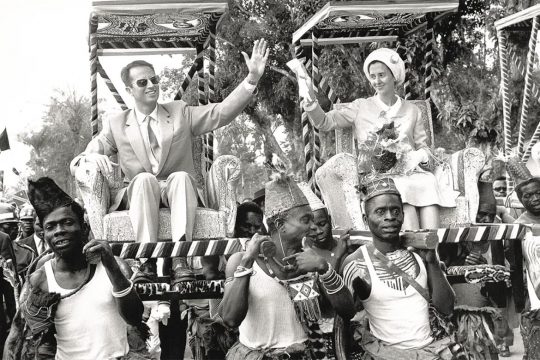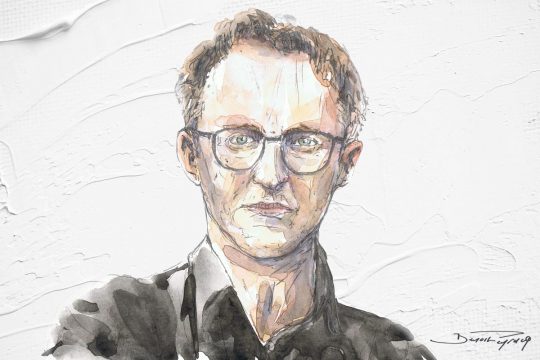Authorities in Burundi have been holding a human rights activist since November 21, 2017, Human Rights Watch said today. The authorities should immediately release the activist, Nestor Nibitanga, or charge him with a credible offense. The police accused Nibitanga, via twitter, of “threatening state security.”
Nibitanga was arrested at his home in Gitega province and taken to the headquarters of the national intelligence service (Service national de renseignement, SNR), in Bujumbura, the capital. Human Rights Watch and other organizations have documented numerous cases of torture of detainees there.
He was held incommunicado, without charge and without access to his family or a lawyer until December 4. He was then transferred to an official jail in Rumonge, south of Bujumbura, where he remains.
“Nibitanga’s arrest is just the latest in a broader crackdown on independent human rights activists and journalists in Burundi,” said Ida Sawyer, Central Africa director at Human Rights Watch. “While many independent activists and journalists in Burundi have been forced into exile, the arrest of Nibitanga sends a chilling message to the few who have remained behind that they stay at their own peril.”
Former detainees at the intelligence headquarters have told Human Rights Watch about being unlawfully detained and tortured there in recent years. They said SNR agents beat alleged opposition sympathizers with hammers and steel construction bars, drove sharpened steel rods into their legs, dripped melting plastic on them, tied cords around men’s genitals, and used electric shocks.
Nibitanga was the regional observer for the central and eastern parts of the country for the Association for the Protection of Human Rights and Detained Persons (Association pour la protection des droits humains et des personnes détenues, APRODH), the leading Burundian human rights organization, before the government shut it down in October 2016. His job included coordinating staff and collecting information on human rights violations in four provinces: Gitega, Cankuzo, Ruyigi, and Karuzi. He also made routine visits to detention centers.
Nibitanga’s arrest follows that of Germain Rukuki, a former member of Action by Christians for the Abolition of Torture in Burundi (ACAT-Burundi) in July 2017. ACAT-Burundi was also closed in October 2016. Rukuki was also first held by the SNR before being transferred to Ngozi prison. He was later accused of “undermining state security” and “rebellion.” Rukuki was denied bail and remains in Ngozi prison, awaiting trial.
a pattern of government crackdowns against opponents
These recent arrests follow a pattern of government crackdowns against opponents, critics, journalists, and human rights defenders since early 2015, after President Pierre Nkurunziza announced he would seek a controversial third term. Since then, many leading Burundian human rights defenders and independent journalists fled the country for their security. In August 2015, Pierre Claver Mbonimpa, the president of APRODH, was shot in the face and neck by an unidentified assailant while driving home from the organization’s office.
Mbonimpa had been arrested in May 2014 and charged with endangering state security, in connection with remarks he had made on the radio. After he became seriously ill, he was provisionally released on medical grounds, but the charges against him were not dropped.
Journalists have also been punished simply for broadcasting information on controversial or sensitive issues. Since 2015, authorities have arrested numerous journalists and ransacked media offices. Jean Bigirimana, a journalist for the Iwacu newspaper, has been missing since July 2016. He was rumored to have been arrested by intelligence agents.
Hundreds of people have been abducted, disappeared, reported missing, or found dead in mysterious circumstances in Burundi since 2015. The government very rarely investigates these cases. In this tense climate, Burundi’s cabinet in November backed changes to the constitution that would allow Nkurunziza to run for additional terms.
In September, a UN-mandated commission of inquiry indicated that there were reasonable grounds to believe that crimes against humanity have been committed in Burundi, including murder, torture, rape, imprisonment, and persecution, against a backdrop of almost total impunity. In November, the International Criminal Court opened an investigation into crimes committed there.
“The authorities’ targeting of activists and journalists shows how far they are willing to go to silence those who might dare to speak out,” Sawyer said. “Burundi’s international partners should press the government to allow journalists and activists to do their work freely, and to stop illegal detention and torture by the intelligence agency.”




